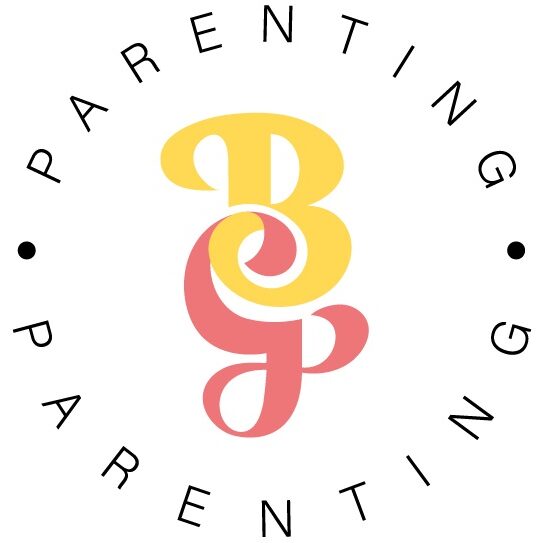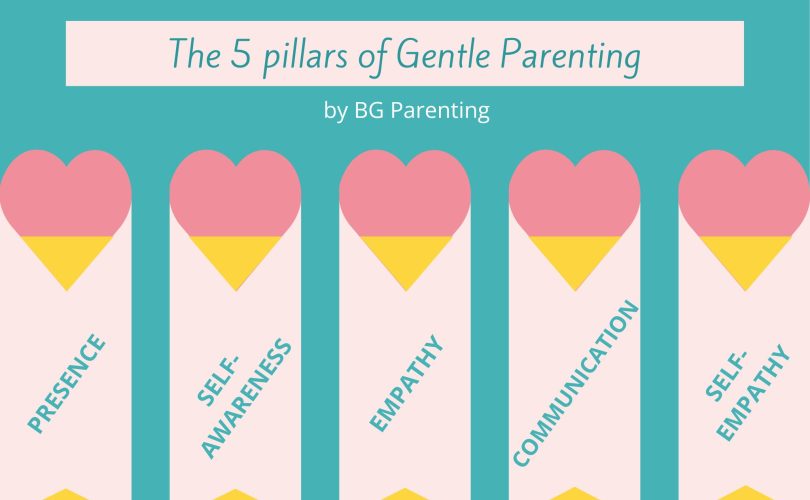Parenting is a challenging yet immensely rewarding journey. It requires patience, empathy, and a deep commitment to fostering a harmonious relationship with our children.
As a gentle/peaceful parent myself – and early follower of Dr. Laura Markham, who coined the term peaceful parenting – as well as a now certified parenting coach with the Jai Institute for Parenting, I would like to offer you my 5 pillars of gentle parenting, to help you create a peaceful and loving environment for you and the children you care for. This is my very first blog post!
- Be present: Building a strong emotional bond with your child is crucial for peaceful parenting. Make time for regular, uninterrupted quality time together, where you can engage in activities of your child’s choice. I recommend spending at least 15 minutes a day with each child, simply joining their world. That could be reading together, taking nature walks, or simply engaging in open conversations. Actively connect and listen whenever you can, so they feel safe and seen. Creating connection and quality time strengthens the parent-child relationship and lays the foundation for open communication and mutual respect.
- Develop self-awareness: Be clear and confident about your values and boundaries, so that you have a “parenting plan” and don’t just make decisions by default or act on impulse. Our ability to manage our own emotions and respond calmly to our children’s behaviour sets the tone for the entire household. Take the time to identify and understand your triggers. Make time to look after yourself, so you can stay centred. Deep breathing, exercise, or journaling can be powerful tools for maintaining emotional balance, allowing you to approach parenting challenges with patience and understanding, and act according to your core values.
- Practise empathy for your child: Dr. Laura Markham emphasizes the importance of empathizing with our children’s emotions and perspective. Look for the feelings and needs beyond their behaviour, and name these out loud. Hold a safe space for your child to express their emotions. Make an effort to actively listen and validate their feelings, even if you may not agree with their actions. By acknowledging their emotions, you create a safe space for them to express themselves and foster a stronger connection based on trust and understanding.
- Communicate clearly and lovingly: Seek consent from your child before you educate them. Communicate expectations to your child in a calm and compassionate way, allowing them to understand the limits without resorting to punishments or bribes. Instead of focusing on controlling their behaviour, state your feelings and needs around the situation using “I” statements (as opposed to “You”). Make sure you make a clear request, rather than stating an order. Building trust is crucial. Clear and loving communication like this promotes cooperation and mutual respect between parents and children. Rather than resorting to punishment or rewards, focus on teaching and problem-solving. You can also use age-appropriate techniques such as redirecting attention, offering choices, and engaging in collaborative problem-solving discussions. By involving children in decision-making and providing logical consequences for any unsafe actions, you encourage their sense of responsibility and self-regulation. Find creative win-win solutions together if you can.
- Practise empathy for yourself: Practise self-empathy and self-forgiveness when things don’t go well. Learn to view making mistakes, as an opportunity to model resilience and repair relationships. Simply apologise to your child, and ask for a do-over or say how you’ll do things differently next time. Then move on. Being a gentle parent is a journey, not a destination.
Becoming a gentle parent requires ongoing effort and a commitment to personal growth. By implementing these peaceful parenting practical tips, you can cultivate a harmonious home environment filled with love, understanding, and respect. Remember, it’s not about being a perfect parent, but rather striving to create a peaceful and nurturing space for your child’s growth and development. Embrace these strategies, adapt them to your unique family dynamics, and enjoy the rewarding journey of peaceful parenting.


Great advice – collaboration is so important to strengthen any relationship. Thank you🤗
Thank you Louise!